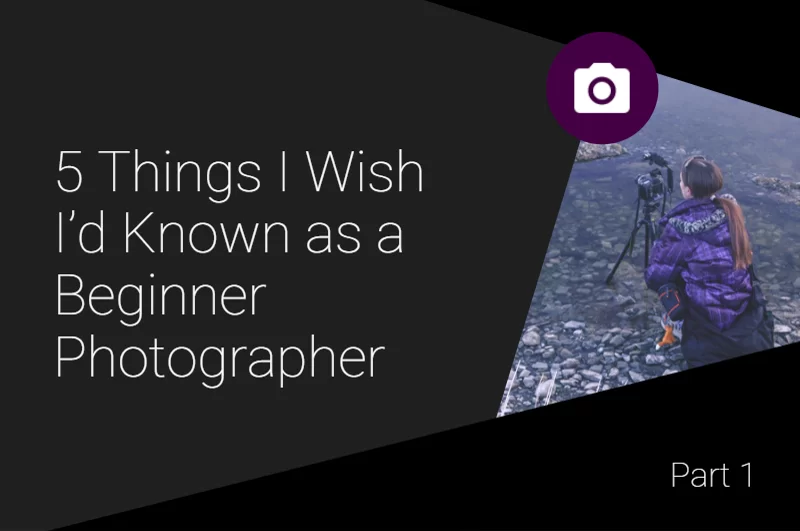
I’ve been a photographer for several years now. Over that time, I’ve made a lot of mistakes and missteps. I made many mistakes as a beginner photographer. Since they say that good decisions come from wisdom and experience and also wisdom and experience come from bad decisions, perhaps I should share some of my experience. So, here are 5 tips which I really wish I would have known as a beginner photographer.
I’m going to start things off with a quote which I found particularly applicable to this topic.
“If I have any ‘message’ worth giving to a beginner it is that there are no shortcuts in photography.”
– Edward Weston
If I could summarize this series in a sentence, I might choose that very sentence. There are no shortcuts in photography at all. However, I can share a few pitfalls which you can avoid.
When starting into photography, you immediately realize you must learn how to operate a camera if you want good pictures. Now you have options there. You can attend a class, read the manual, seek out online tutorials, learn from an expert, etc. However, there’s more to photography than simply basic camera operations.
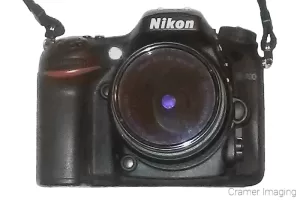
Half of becoming a good photographer is understanding and properly manipulating in camera, the other half is post-processing. Without both, you will never become a good photographer. You might luck into one or 2 good shots, but that’s all you can ever expect. I took an entire semester course in college to learn basic camera operations and basic photography techniques. But that course only scratched the surface. My next semester course covered some beginner-level post-processing. Still, I needed an in-depth course on Lightroom to teach me how to make photos like these below.
In these next photos, you’ll see where I mastered enough of my camera and basic composition to nail a potentially great photo. However, my under-developed post-processing skills held them back from being great photos. Once I learned more, I revisited those early photos and reprocessed them. Now they finally live up to their potential. The difference? Better post-processing skills.
You can easily see the difference in my post-processing skills between both rounds of post-processing. I never sold copies of the first job. However, I’ve sold some copies of the second job.
There’s so much more to photography for you, as a beginner photographer, to learn. Without a well-rounded set of skills in camera operations, composition, and post-processing, your photos will never shine. So don’t neglect any of those skills as you explore photography.
Believe it or not, your camera equipment doesn’t matter quite so much in the beginning. When you’re first starting into photography, it really doesn’t matter how many megapixels your sensor handles or how much your camera’s buffer will hold while writing to your memory card. You probably won’t be taking the best shots of your photography career while still a beginner. So extra bells and whistles won’t help you much. What does matter is whether or not you have the basic functions you need to start learning photography.
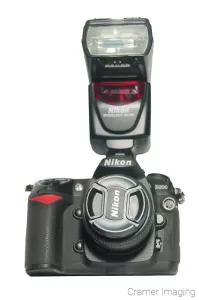 What you need in the beginning isn’t much compared to what’s out on the market. You need a basic camera body and lenses to match. You’ll want a wide angle and a telephoto lens for some variety. Also, you’ll want a tripod and you might need a basic flash unit. That’s it. As long as you can acquire and operate these basics, you’ll have everything you need to learn basic photography with.
What you need in the beginning isn’t much compared to what’s out on the market. You need a basic camera body and lenses to match. You’ll want a wide angle and a telephoto lens for some variety. Also, you’ll want a tripod and you might need a basic flash unit. That’s it. As long as you can acquire and operate these basics, you’ll have everything you need to learn basic photography with.
When you’re starting out in photography, you definitely don’t need all brand new equipment or the latest-and-greatest models. You don’t even know for sure if you’ll stick with photography long-term yet. Just like you don’t hand the keys of a brand new Ferrari to a teenager with a shiny new driver’s license, you don’t start into photography with equipment you’re not yet ready for. Instead, consider checking out refurbished equipment or shopping at second-hand stores such as thrift stores or pawn shops. If you know what you’re doing, you’ll land a great deal on beginner-level camera equipment. During my time as a beginner photography student, I borrowed a used camera with 6 megapixels from my teacher until I could invest in a better camera myself.
As you learn and explore photography, you’ll naturally find you want more equipment to assist you. Then you can still check out the second-hand market on E-Bay, Facebook Marketplace, or plenty of other sources. As you continually explore photography, some of those bells and whistles will eventually make sense for you as a no-longer beginner photographer. Until that time, don’t worry about dumping lots of money into equipment which you might not even need.
The world of photography is full of all sorts of accessories. There’s everything from backdrops and reflectors to external strobes and gels to trigger releases and more. The industry behind camera accessories is huge and growing. However, you won’t need EVERY single accessory (or even type of accessory) available on the market. Most of those accessories are designed for a specific purpose in photography which might not work with the photography you want to create. If you invest in the wrong accessories, you might find them useless and collecting dust in a closet somewhere. I have a backdrop and several strobe stands which I don’t use anymore. If I were still pursuing portraiture, I’d use them a lot. They simply aren’t useful in landscape photography.
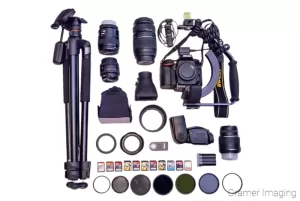
There is another side to this discussion. If you do find you need a particular accessory in your photography, then acquire it and learn how to use it. Learn it so well that you know when you need it and how to use it on instinct. You won’t need to stop and consider if this particular piece of equipment might help or not. You just know. The idea is that you and your camera/extra equipment become one in the process of making a photo. Do not expect to just know how to/when to use certain accessories. Always give them a good test drive. Then learn how and when to use them.
There’s simply no better way to put this. You must practice, practice, practice, and practice some more as a beginner photographer. You’ll never learn your gear or improve as a photographer without lots of practice. If you’re serious about photography, then practice won’t be much of a chore. However, your amount of practice will show your level of seriousness.
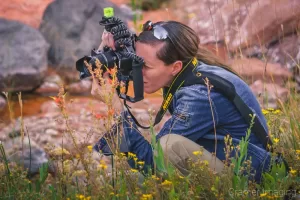
I’m currently a professional landscape photographer. I’ve received pay for my efforts by selling prints and from clients hiring me directly. However, I didn’t start off this way. I started at the bottom with anyone else who picks up a camera. I studied photography and thought that intellectual knowledge would propel me much further than it did. However, I didn’t practice as much as I should have and my progress stymied. Life and my own pride got in the way. That’s why it’s taken me 10 years to make the honest claims at the beginning of this paragraph. I could have made such claims sooner if I practiced much more than I did.
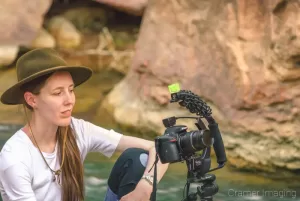
The more you practice, the quicker you’ll improve. The more focused your practice, the faster your improvement will be. Seek out a photography group to teach you and challenge you. Give yourself challenges or assignments if you can’t find another source. No matter how you do it, keep practicing. I know that capturing many photos is down to luck. However, luck favors the prepared. Imagine the perfect photo opportunity in front of you but you miss it because you’re too busy fumbling with your camera trying to get things right. I’ve experienced that disappointment. Practice helped me and will help you avoid that regret.
Perhaps one of the best things you can do for yourself, as a beginner photographer, is to find yourself a mentor. A mentor, already skilled in the field, knows photography. He or she will be able to properly instruct you in photography basics, guide you in learning photography, and point out places for improvement which you might be blind to. In short, a mentor will personalize your photography education in ways that classroom or online learning cannot.
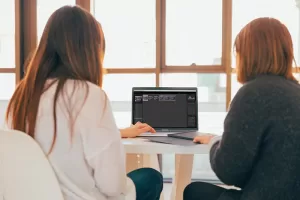
Early in my photography education, I benefited from 2 different instructors who evaluated my work personally. Yes they were professors over a class. However, they graded my work personally along with the rest of the class. I received feedback from both of them. One of those professors pointed out that my initial DSLR camera was insufficient for my photography education and loaned me one of his as a stop-gap. I progressed in photography much faster thanks to the efforts of both my professors/mentors.
As a beginner photographer, there’s so much to learn. However, there’s no way you can know what all you don’t know. That’s why I’m sharing a few tips I wish I’d known when I was in your shoes. If you choose to learn from my experience, perhaps you’ll skip past a few pitfalls I fell in and pulled myself out from. I’ll continue this series to help all of you who are new to photography. Good luck and happy shooting.
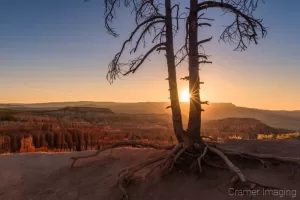

Receive monthly updates in your inbox from us.

Join our email-only photo of the week club to get the full stories behind how we captured our favorite fine art landscape photos.
We respect your privacy
No More Results